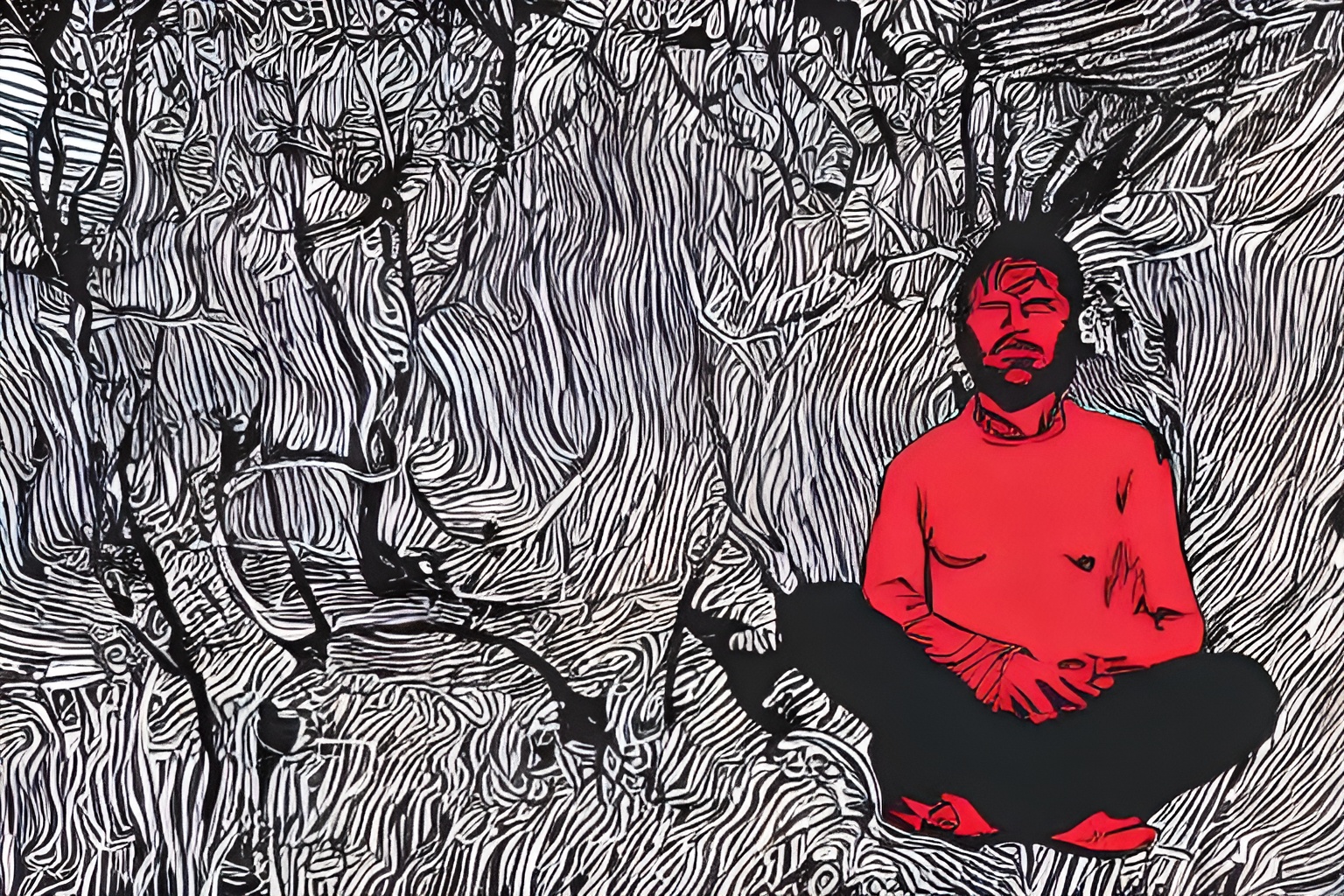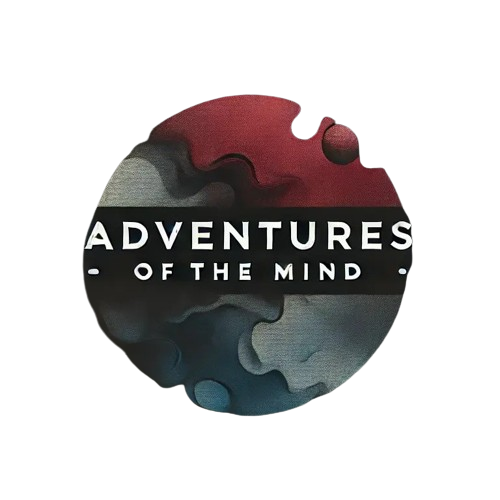What is Personality?
Published by Ben Worrall 3rd December 2023

One of the most beneficial areas of investigation when starting your self-development journey is the complex topic of personality.
At first glance, personality isn’t exactly a mystery. We tend to notice it operating in ourselves and others. However, we rarely give it much more than a passing thought. This creates blind spots in our understanding of the world.
We’re born as a blank slate, and as our sense of self is constructed, we slowly learn more about who we are and how we function in relation to others. But there’s no guarantee that we’re going to be able to fully understand our personality from our early experiences alone. It takes decades, often an entire lifetime, to truly understand who we are.
In an ideal world, we’d be learning about the way personality works from a young age. Unfortunately, this topic is rarely taught, other than maybe a very simple and condensed version of ‘everyone being different’.
The responsibility falls upon curious individuals to be proactive in learning more about all the internal facets of their existence. And as someone who has spent almost a decade studying the human mind, I can help outline some of the main principles for you here.
The Benefits of Understanding Personality
Learning about personality isn’t a dry academic pursuit. Improving your understanding in this area has many practical consequences. Most of us interact with others daily; therefore, even just building a basic understanding of how personalities differ is enough to begin seeing these interactions from a more nuanced perspective.
Understanding personality allows you to develop more compassion for yourself and others. We live in a world where we’re often expected to fit into a narrow definition of normal. Not being able to live up to these expectations can be painful and scary. Being rejected from the tribe is a deep-rooted fear. However, once we begin to see the diverse range of personalities out there, it becomes clear that each personality has its place, even if it isn’t fully embraced by the culture of the time.
Lifestyle Design
Becoming familiar with your personality is key to building a fulfilling life.
It’s important to realise that the status quo isn’t designed for you as an individual. Most people blindly follow the herd through cookie-cutter obstacles toward a storybook destination. Living lives that aren’t suitable for them because they haven’t been taught about personality and therefore haven’t had the inclination to explore alternative lifestyles that may have made them happier.
Armed with a deep knowledge of your personality, you’re able to make unconventional decisions to construct your life on your terms. A life based on your values.
Taking Multiple Perspectives
I’m all about open-mindedness and developing the ability to see situations from multiple perspectives. Many of the problems in the world arise due to the inability of individuals to take different perspectives. This simple deficiency in human development is at least somewhat responsible for the never-ending stream of conflict we see around us.
Understanding personality is just one aspect of viewing situations from the perspectives of others; historical, cultural, moral, biological, and ego development also play a huge role in the construction of a translucent wall between the perspectives of differing parties. With this said, understanding personality makes a big difference in developing empathy.
When someone does something you don’t like, before immediately giving into the knee-jerk reaction to judge, criticize, or confront, you’re able to take a step back and try to figure out what it is about their personality that’s driving the behavior. You don’t have to agree with it, but you can better understand it.
The Foundation of Personality
How exactly does personality come to be? It’s somewhat of an unknown. We understand ourselves to have a personality, but it’s not immediately clear how our personality formed into what it is today.
Research generally suggests that personality is a complex system that is influenced by a variety of factors. Both nature and nurture seem to play a role in its development.
Temperament
Studies lean toward the notion that babies are born with a pre-programmed temperament, which acts as a basic blueprint for what the personality of that child could become over time.
Genetics seems to play at least some role, but the personality developed from an inborn temperament can grow in vastly different directions based on a variety of factors, including upbringing, cultural norms, experiences, interpersonal influences, and the general will of the individual to self-actualize.
For example, a calm baby may become a more naturally reserved adult, or that child’s experience growing up in a heavily social environment could cause a shift toward being a more outgoing adult than it would have been otherwise.
The process is complex and is influenced by a multitude of factors that have differing levels of impact on development. Even small experiences can cause large personality changes.
Tools for Discovering Personality
Others may give you clues about your personality, and this information can be helpful in learning more about yourself.
But I’d recommend spending some time deep-diving into your own personality through self-exploration.
Introspection
One simple way to do this is by introspecting.
Sit down by yourself with some type of note-taking system and set aside an hour of your day to go deeply into yourself. You could bring to mind memories of early childhood and see if you’re able to spot any signs of inborn temperament. These are going to be natural tendencies that feel like they have been with you forever and are core to who you are. Look for unique behaviors or interests you had as a child; these could reflect aspects of your temperament.
It may also be worthwhile to talk to anyone who knew you as a child and get their perspective on your natural qualities. They have a clearer recollection than you do, and this can help fill in some of the gaps.
If the insights from others match up with your intuitions and memories, then it’s likely these could be areas where your temperament was shining through. Make a note of these and consider whether these qualities are still with you today. They may have been pushed down or evolved, but they’ll still be there somewhere.
It can be emotionally difficult to introspect deeply. You’re probably groaning just thinking about it. But the answers are usually within you, sometimes all it takes is a willingness to look.
Personality of Habit
Another way to investigate your personality is to focus on aspects of yourself that have been created through habit.
These could be habits formed through consistent exposure to a specific situation as you were growing up. For example, if your family was big on camping or taking hiking trips, it’s likely that you have taken these recurring experiences and merged them into your personality. This could manifest as a calling to adventure or freedom.
Another example would be growing up in a household where gorging on junk food and sitting in front of the TV all day was normalized. If this was your experience, there’s likely going to be a part of you that’s drawn towards being hedonistic and lazy.
Consider what some of these habit-forming experiences could be for you and how they have influenced your personality today.
Habits are also often formed as a means of self-protection or even a conscious decision you made to evolve your personality in a certain way. A common example of this is being bullied in school. For you, the world was threatening and scary, so you chose to close yourself down and make yourself small. Or maybe you’re always on guard, defensive, ready to fight if necessary. These negative experiences create an unshakable sense of self that feels solid but has been built up from the ashes of childhood trauma.
I remember at some point as a child, I made the conscious decision to ‘be a lone wolf’ and ‘walk my own path’. I can’t remember exactly what caused me to take on this attitude. But that seemingly small vow has greatly affected my personality to this day and influences my life in both positive and negative ways.
Personality Tests

There are also tools you can use to learn more about your personality.
Personality tests, for example, are a popular way of grounding your personality under distinct categories based on research. My view is that these tests can be helpful in pointing you in the right direction, but should not be taken as gospel. The truth is people are complex, and the full range of distinctions between individuals can’t possibly be accurately mapped through a personality test.
With that said, let me outline some of the most well-known personality tests available online:
Myers–Briggs Type Indicator (MBTI) — This is the most popular test and is based on the research of Carl Jung. After taking the questionnaire, your personality will be defined as one of 16 distinct types, based on four dichotomies: Extraversion/Introversion, Sensing/Intuition, Thinking/Feeling, and Judging/Perceiving. Keep in mind, that while popular, the MBTI is viewed with scepticism by many in the scientific community.
Enneagram Test — Another popular test which breaks down the human psyche into 9 interconnected types, each characterized by core motivations, fears, and beliefs. It focuses on emotional responses and internal motivations.
The Big Five — Focuses on five broad dimensions of personality: Openness, Conscientiousness, Extraversion, Agreeableness, and Neuroticism. This is one of the most respected tests in the scientific community.
DISC Test — Used often in business or leadership contexts. The DISC test focuses on understanding differences in interpersonal communication. It measures five main aspects of personality: Dominance, Influence, Steadiness, and Conscientiousness.
If you’re serious about understanding your personality, my advice is to spend a day or two doing all four tests listed above and then contrast and compare the results. Don’t take any one test as absolute truth, instead look for overlaps and connections that may point the way toward true insights about yourself. You can then compare these insights with what you have discovered through introspection.
With all this information about yourself at your disposal, you’ll start to get a much clearer picture of your personality and how different aspects of yourself influence each other.
Creating a Personality Map
Consider creating a map of your personality based on your findings.
Create a new document on a digital device, ideally using software that allows you to create visual maps, and begin to pinpoint various areas of your personality based on your discoveries. You can then start making connections between different aspects of your psyche. Notice how they operate in relation to each other.
For example, maybe you’ve concluded that you’re an extroverted person with a deep need to be around other people. You then notice that you tend to lack assertiveness. The connection between the two could be your people-pleasing attitude which has developed because your greatest fear is being abandoned and alone with no one to talk to. This simple connection makes complete sense. You’ve just made an insightful discovery into what makes you tick. You can go very deep with this type of enquiry and may be shocked by what you discover.
As you go about your life and continue your journey of self-discovery, you can add to or adjust elements of your personality map. Over time, the map will not only become more accurate, but through frequent exposure, the big picture structure of your personality will begin to crystalize in your mind and you’ll find yourself having to rely less on the map. It’s at this point that your self-awareness will skyrocket and you’ll be able to quickly become aware of how aspects of your personality are influencing your decision-making, your behaviour, and your interactions with others.
Becoming clearer about your personality is gold when it comes to self-development. Awareness is the key to change. Therefore, as you become more aware of who you are, you’ll be able to notice which aspects of yourself are moving you in a desired direction, and which aspects are holding you back. Gradually, your personality can be shifted to align with your vision for yourself.
A Dynamic Personality

In this essay, we’ve discussed methods for finding and mapping your unique personality. However, we have assumed that personality is more or less a fixed state. We tend to be under the impression that personality has a solid reality to it; in other words, having a personality is a fundamental aspect of being human.
Observing my own experience, I think of myself as having a sense of identity. Others who know me view me as a singular entity. They know, within boundaries, what to expect of me, and I keep within these boundaries to remain myself. But what stops me, or you, from waking up tomorrow morning and being a completely different person with an antithetical personality?
In theory, this shouldn’t be difficult; I could just choose to act like someone else. But in practice, becoming a different person overnight appears to be almost impossible. However, it’s not impossible, as can be demonstrated in people with Dissociative Identity Disorder (DID). This line of enquiry leads to some deep considerations, such as the constructed nature of the self.
The main point I want to make is that taking the popular view that our personalities are set in stone and rarely change is going to limit your ability to develop yourself. Learning about yourself is vital, but don’t lose sight of the fact that personality is ultimately fluid and there’s no universal law that forces you to be you. You have the power to change whenever you want.
A Grand Tapestry of Differences
Let me end by taking a moment to consider the vast array of personality types out there. Try to put yourself in the shoes of the people you know and see if you can get a sense of what it would be like to view the world through their eyes, with their unique personalities.
If you successfully do this, you might get a brief glimpse of how not only is their personality different from yours, but their entire worldview creates a reality for them, that is entirely different from the one you’re experiencing yourself.
Just like your favourite stories where conflict is produced through characters with contrasting personalities, life is also engaging for the same reason. To be able to appreciate differences in others and engage them with curiosity and wonder, to learn more fully what their experience of life is like, may not just be a healthier way to relate to others, but could be the very reason we have personality in the first place.
Ben Worrall





